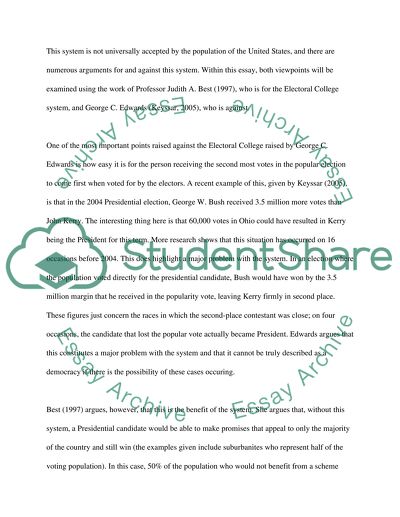The Electoral College Essay Example | Topics and Well Written Essays - 750 words. Retrieved from https://studentshare.org/history/1432642-the-electoral-college
The Electoral College Essay Example | Topics and Well Written Essays - 750 Words. https://studentshare.org/history/1432642-the-electoral-college.


